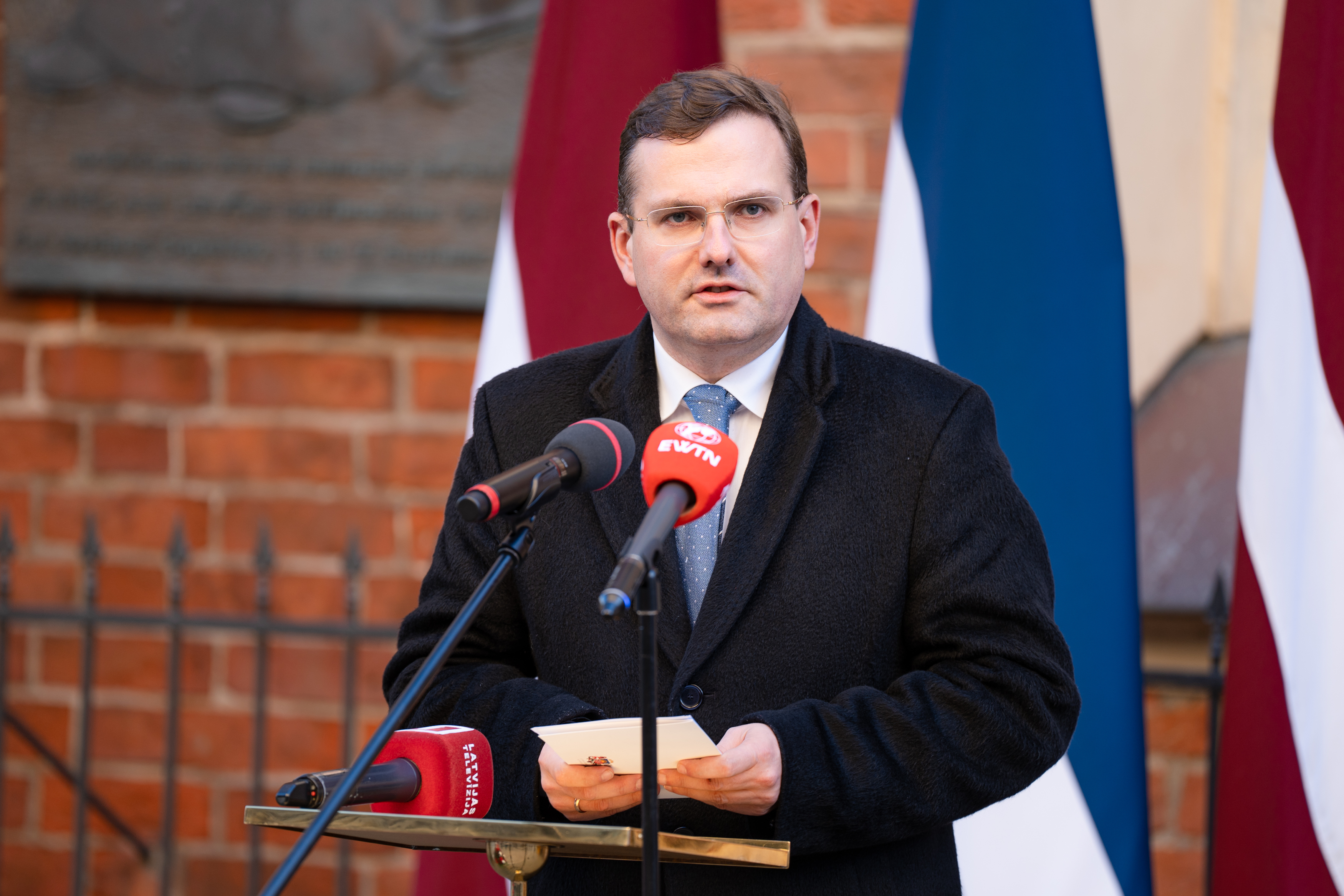16 October, 2024
"Honouring Francis Trasuns, we are aware of the greatness and timelessness of united Latvia. Both then, when he brought together the people divided by history, today and in the future," said Senator Jānis Pleps on 16 October at the commemorative event of the 160th anniversary of Francis Trasuns. When addressing the audience, the Senator highlighted the constitutional legacy and legal ideas of Francis Trasuns, which are still relevant today.
Francis Trasuns is one of the founders of the Latvian state. If it was necessary to select one article of the Constitution for each of its “fathers” that most precisely expresses their contribution and role in the creation of the Latvian State, Jānis Pleps would refer Article 3 of the Constitution, which provides for the principle of the unity of the lands inhabited by Latvians, to Francis Trasuns. “To quote the first President of Latvia, Jānis Čakste, – Francis Trasuns put the third star, signifying Latgale, in the coat of arms of Latvia. Without him, the course of Latvian state and national history could have been much different," said Jānis Pleps.
Moreover, Jānis Pleps noted the establishment and strengthening of the parliamentary tradition in Latvia as another contribution of Francis Trasuns. He had a parliamentary work experience in the First State Duma of the Russian Empire, and his speeches, interjections and proposals in the Constitutional Assembly and the Saeima showed a self-conscious and experienced parliamentarian who was well versed in the subtleties of parliamentary work and who cared about the authority and prestige of the parliament.
Jānis Pleps also gave several examples showing the contemporary relevance of the vision of Latvia's national development advocated by Francis Trasuns for today's Latvia.
Trasuns opposed excessive centralisation of the state and the homogenisation of its regions, and the idea of decentralisation and subsidiarity, especially in his native Latgale, was close to him.
When discussing human rights, he emphasized the one-sidedness of Part II of the draft Constitution, which declared only rights and forgot about citizens' duties towards the state.
Or – no place for illusions about the Kremlin's policy and interests towards Latvia. Trasuns saw the future of Latgale and Latvia as being a geopolitical part of Europe. Jānis Pleps quoted Trasuns’ words at the Latgale Congress of Latvians in Rēzekne, "Dear gentleman, we have to decide for once – whether to go with the barbarians to the East or with culture to the West!"
Jānis Pleps emphasised another of the lifetime achievements of Francis Trasuns – the settlement of the issues of religious freedom and the status of Catholic Church in the new Latvian state, which was a crucial development on the road to the unification of the state and the nation.
Speaker of the Saeima Daiga Mieriņa, Auxiliary Bishop of the Archdiocese of Riga Andris Kravalis, historian Vladislavs Malahovskis and writer Inga Ābele also addressed the audience at the commemorative event organised by the Latgale Region Subcommittee of the Saeima Human Rights and Public Affairs Committee.
Francis Trasuns was a member of the Constitutional Assembly, a member of the 1st and the 2nd Saeima, a clergyman and a writer. In 1917 he chaired the Latgale Congress in Rēzekne, where it was decided that Latgale should unite with the other Latvian regions into one country. Francis Trasuns was also a man of letters; he founded and managed several Latgalian periodicals.
Information prepared by
Rasma Zvejniece, Head of the Division of Communication of the Supreme Court
E-mail: rasma.zvejniece@at.gov.lv, telephone: +371 67020396, +371 28652211
Photo by the Press Service of the Saeima


